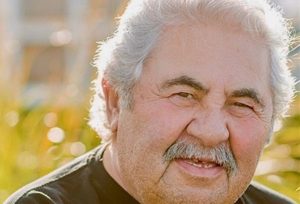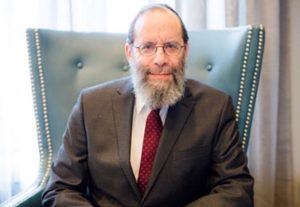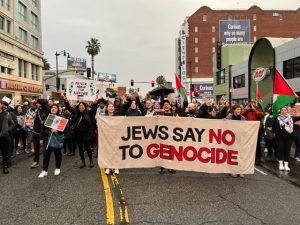WINNIPEG – Toronto Holocaust survivor Pinchas Gutter is scheduled to be the keynote speaker at Winnipeg’s annual high school Holocaust symposium, which is being held two months earlier than usual this year in an effort to attract more students.
Gutter, a child survivor of the Warsaw Ghetto and several concentration camps, is slated to speak March 17 at the Freeman Family Foundation Holocaust Education Centre of the Jewish Heritage Centre of Western Canada’s 15th Holocaust and Human Rights Symposium for students in grades 9 to 12.
READ: STUDENTS LEARN ABOUT SHOAH VICTIMS THEIR OWN AGE
In years past, the event was always held in May. “We decided move the date up to accommodate schools’ busy schedules,” said Belle Jarniewski, chair of the Freeman Family Foundation Holocaust Education Centre. “Each year we send out a post-symposium poll, and schools have told us that May is a busy month for them. We weighed this against possible issues with weather and decided to try an earlier date this year.
“As well, we have not been able to invite the University of Winnipeg Collegiate students in the past, as they have already finished their academic year in May. We are pleased to welcome a large number of its students this year.”
Average attendance has been about 1,200 students from high schools in Winnipeg and surrounding areas. “We hope to have many more students attend this year,” Jarniewski said. “Registration is still ongoing.”
Gutter – whom Jarniewski called “an extraordinary individual” – was born into a family that can trace its roots back 400 years in Poland. Originally from Lodz, he was seven years old when the war broke out. He and his family lived in the Warsaw Ghetto for 3-1⁄2 years until April 1943, the time of the ghetto uprising. They were deported to the Majdanek death camp, where the rest of Gutter’s family was murdered. He survived six concentration camps and a death march toward the end of the war. Russian forces liberated him in May 1945, and, under the auspices of the United Nations, he was taken to Britain with other children for rehabilitation. After spending many years in South Africa, he immigrated to Canada.
Gutter divides his time between speaking about the Holocaust and volunteering as a cantor at a Toronto synagogue, and as a lay chaplain at Baycrest and a local prison. He has spoken to many young people in Canada and around the world about his struggle for survival.
The Freeman Holocaust Centre is located on the Asper Jewish Community Campus. Its exhibits consist of artifacts donated by local survivors and their families.
“Our mandate is to raise awareness and understanding of the history of the Shoah through education,” Jarniewski said. “We address the fact that society continues to witness genocide due to continuing racism and hatred and that we must all be vigilant in opposing racism, anti-Semitism and other forms of bigotry.
“The purpose of our symposium is to allow students to have the exceptional opportunity to learn first hand about the Shoah and what we need to learn from it. Each speaker brings with him or her their own moving and special story that defines for the students why the Shoah is the ultimate prototype for the study of human rights violations, what they can learn from it and what they can do in their everyday lives to make a difference.”
Previous speakers have included Holocaust survivors Eva Kuper, Robbie Waisman, Ely Gotz, Max Eisen and the late Leon Leyson, the youngest of the Schindler’s List survivors. Also addressing the symposium in the past have been Father Patrick Desbois, author of Holocaust by Bullets, chronicling the French Catholic priest’s efforts to learn the fates of numerous eastern European Jews who perished in the Holocaust; and Leon Bass, an African-American soldier who witnessed the liberation of Buchenwald.
READ: STUDENTS GAIN UNDERSTANDING OF HOLOCAUST TO BETTER CARE FOR SURVIVOR PATIENTS
Students also hear from more recent survivors of mass murder. This year, Kobra Rahimi, a Kurdish refugee, will speak about her experiences. Rahimi was born in a refugee camp in southern Iraq after her parents fled their town in Iran when the Iran-Iraq War began in 1979. The family spent 22 years in the camp, and Kobra lived there until age 15. She came to Canada in 2001, making Winnipeg her home. Despite having attended school for only grades 1 and 2, Kobra went directly into Grade 9, but still managed to graduate high school and earn a BA in criminal justice from the University of Winnipeg. She’s now in her second year of law at the University of Manitoba.
“After coming to Canada, Kobra struggled with her identity, both as a Muslim and a Kurd, in particular when members of her family were injured in the war in Iraq in 2007,” Jarniewski said. “Because of these experiences, Kobra is now active in different community initiatives to bring people together of different faiths and ethnicities.”






